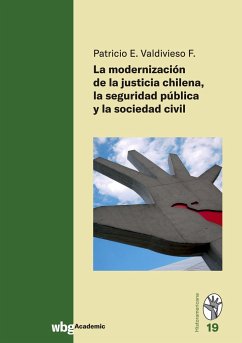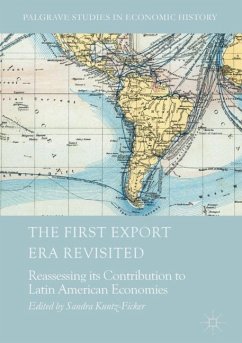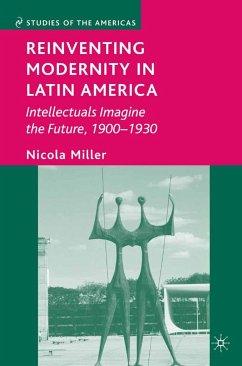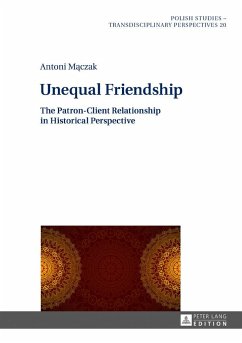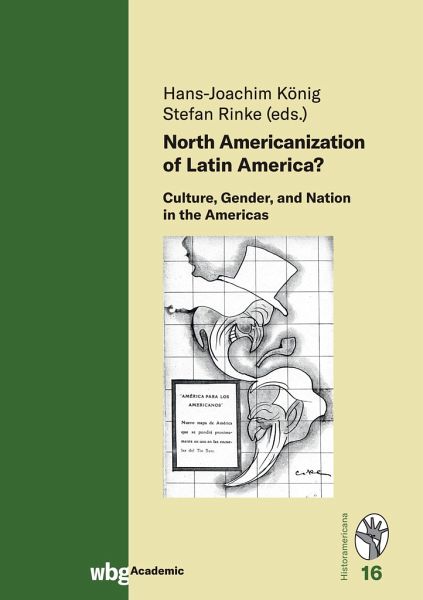
North Americanization of Latin America?
Culture, Gender, and Nation in the Americas
Herausgegeben: Rinke, Stefan
Versandkostenfrei!
Versandfertig in 6-10 Tagen
35,00 €
inkl. MwSt.

PAYBACK Punkte
0 °P sammeln!
In the course of the 20th century, Latin Americans had to face an increasing United States influence in the Americas. They have asked themselves what this development might lead to. From 1898 to the present the concept of North Americanization has been hotly debated in the region. The term has many different meanings in the Latin American societies, meanings that have changed over time and that reflect the differences in gender, social class, and ethnic background. After September 11, 2001 these discussions have gained new relevance due to the rapidly changing international agenda. This volume...
In the course of the 20th century, Latin Americans had to face an increasing United States influence in the Americas. They have asked themselves what this development might lead to. From 1898 to the present the concept of North Americanization has been hotly debated in the region. The term has many different meanings in the Latin American societies, meanings that have changed over time and that reflect the differences in gender, social class, and ethnic background. After September 11, 2001 these discussions have gained new relevance due to the rapidly changing international agenda. This volume assembles an interdisciplinary set of important contributions to crucial aspects of North Americanization in Latin America. Addressing categories such as culture, gender, and nation the articles provide new approaches to the study of inter- and trans-American relations in the twentieth century from the perspectives of historians, anthropologists, sociologists, and American studies scholars.









